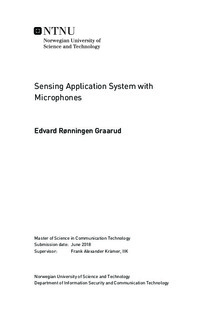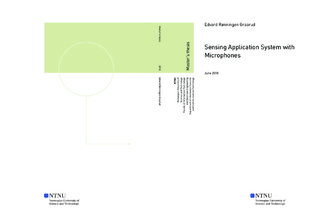| dc.description.abstract | The Internet of Things is one of the most promising fields of technological advancements. Through networks of sensors, we can obtain information about the environment around the sensor and use it for various purposes. In this project, the usage of microphones as a sensor is explored, by utilizing machine learning to classify sound clips collected in a lecture hall. To make raw sound clips usable by weak sensors, a downscaling of duration and sample rate of the audio clips are done. The downscaling is measured against the classification accuracy and Matthews Correlation Coefficient and show that the audio clips used in this project could by downscaled by a factor of 197, without losing classification accuracy/MCC. Based on the results of the downscaling tests, an estimation of energy consumption using Bluetooth Low Energy to transfer the audio files is presented, and the estimation result give a sensor lifetime that the author considers viable for a sensor network. Lastly, some approaches to adaptive sensing is briefly discussed, as a function to increase the reactiveness and data value.
In the end, the results are considered mostly as a proof-of-concept for using downscaled audio files in an IoT-setting with weak sensor nodes. Even though these tests are done with a specific binary classification-based use case, and performed in a specific lecture hall, the results seem promising for other applications. | |

